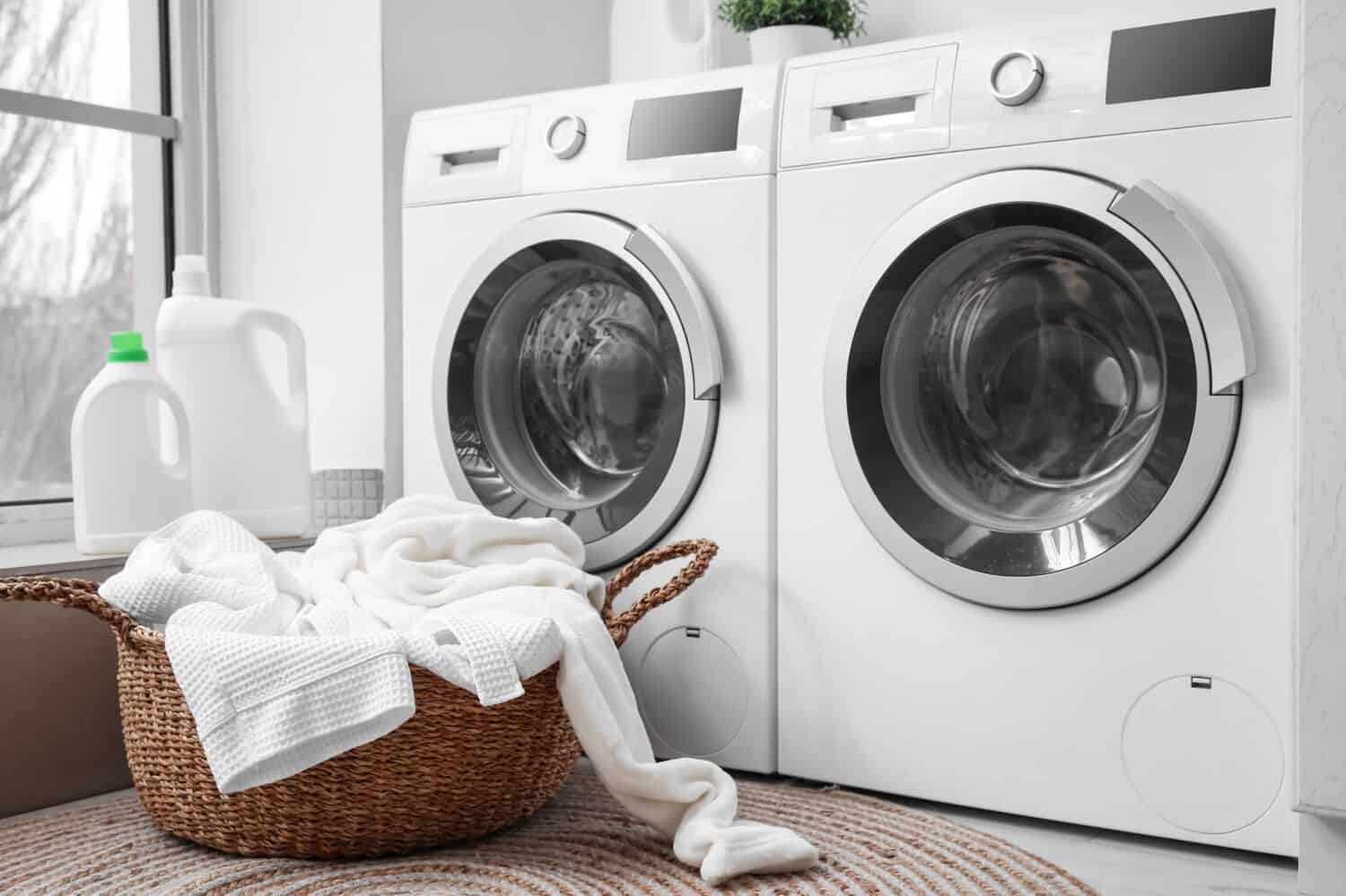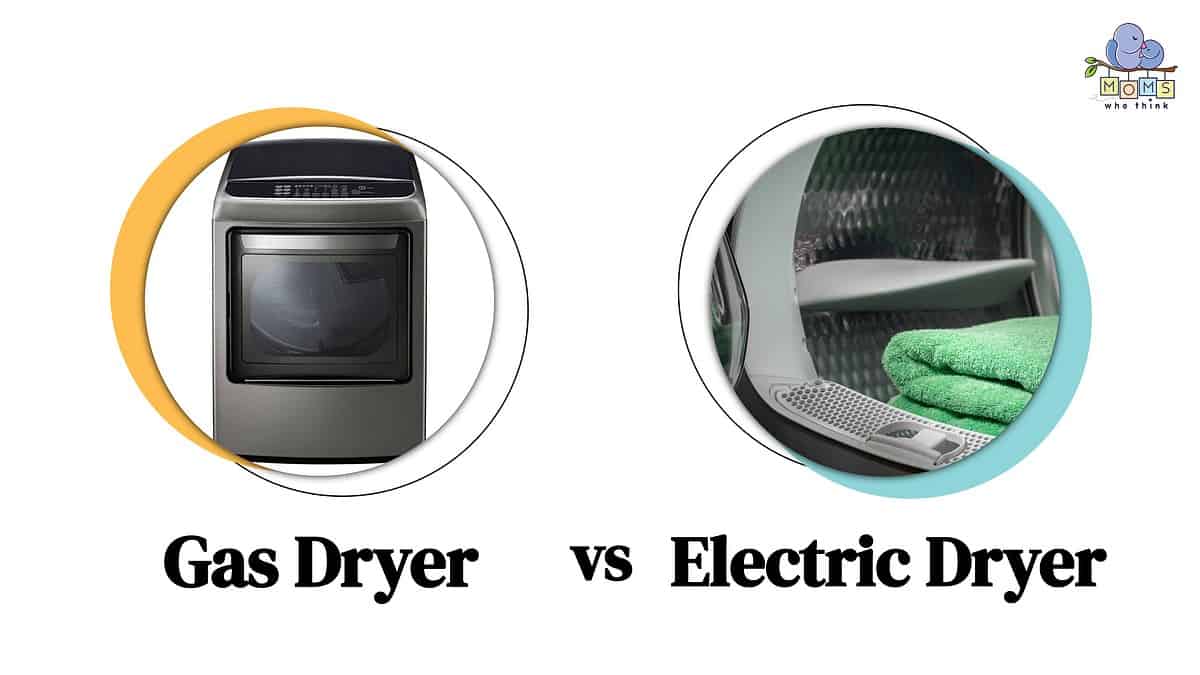

Gas Dryer vs. Electric Dryer: Pros & Cons for Each
How do you choose between a gas dryer vs. electric dryer? Well, it depends on what you are looking for. Are you looking for a dryer that will dry your clothes faster? Or are you looking for a dryer that will be cheaper to run? You may be looking for a more energy-efficient dryer.
Electric and gas dryers each have their own set of advantages and disadvantages. When making a large household purchase like a dryer, it's essential to consider both the initial cost and the long-term operating costs (including energy consumption) to determine the overall value of the appliance. Other factors like safety, ease of installation, and longevity will also influence your decision. Let us examine the pros and cons of each dryer to make an informed decision about the best one for your family.

Gas and electric dryers obviously dry clothes, towels, and other household items. However, the main difference between the two is how they generate heat to dry laundry.
Gas Dryer vs. Electric Dryer: What is a gas dryer?
A gas dryer uses natural gas or, in some cases, propane as a fuel source to generate the dryer's heat. Gas dryers typically have a gas burner located inside the appliance, which ignites to produce heat. This heat circulates through the wet clothes drum, evaporating the moisture and drying the laundry.
Additionally, gas dryers must have an outside vent for safety reasons. Gas dryers produce hot air as a byproduct of burning natural gas or propane. This hot air must be safely vented outdoors to prevent heat buildup indoors and to ensure that harmful gases like carbon monoxide are safely expelled outside.
Faster drying times are one of the reasons families choose gas dryers. Moreover, they remove water from fabric more efficiently and are gentler on clothes. In the long term, they are cheaper to run than electric dryers, although the cost will depend on gas rates in your area.
Since there is a danger of a potential gas leak, a qualified dryer professional should repair a gas dryer. Moreover, since gas dryers require technicians with specific training and certifications, repairs may be more expensive. Additionally, labor may be more costly due to the specialized parts inside gas dryers.
Gas vs. Electric Dryers: What is an electric dryer?
Electric dryers are more widely available than gas dryers. Most electric dryers operate on a 240-volt current, twice the strength of a regular household current, to dry laundry. Smaller or more compact dryers may operate on less current but require a lot of electricity. Electric dryers consume twice as much energy as gas dryers, although electric rates in your area may affect this number.
Electric dryers are easy to install. They can be removed from the box and plugged in immediately, whereas gas dryers will always have additional installation costs, even if a gas line is installed in the home.
Because electric dryers don't run as hot as gas dryers, electric dryers take longer to dry clothes. Electric dryers do not have some of the features of gas dryers, like an automatic shutoff feature that detects the moisture level in the clothes.
Electric dryers have a lower upfront cost than gas dryers. In general, they average one hundred dollars less than a gas dryer, although the long-term expenses, such as utility costs, may be more costly in the long run.

©Yuganov Konstantin/Shutterstock.com
Gas Dryer vs. Electric Dryer: The pros and cons of each
Now, let us compare these two dryers and examine the pros and cons of each type.
| Gas Dryer | Electric Dryer | |
|---|---|---|
| Cost | Gas dryers tend to be more expensive than electric dryers. | This dryer may be the more affordable option if purchasing a dryer on a tight budget. |
| Installation | Installing a gas dryer in a home without an already present gas line is costly. | Installing an electric dryer is straightforward and easy. |
| Energy Use | Gas dryers use less energy and leave a smaller environmental footprint. | Electric dryers use twice the energy of gas dryers. |
| Wear and Tear on Laundry | They dry clothes more gently because they use specific temperatures to efficiently evaporate water from the clothes. | Electric dryers don't run as hot, so they take longer to dry laundry, subjecting them to more wear and tear. |
| Repair and Maintenance | Gas dryer repairs should always be done by qualified technicians. Repairs are typically more expensive. | Electric dryers are easier to fix and can sometimes be fixed without calling in a maintenance specialist. |
| Lifespan | The average lifespan is thirteen years. | Electric dryers typically last fourteen years. |
Electric dryers are cheaper upfront but more expensive to operate long-term due to higher electricity costs and less energy efficiency. However, they are widely available and suitable for homes without gas lines. Natural gas combustion makes gas dryers more energy-efficient and faster at laundry drying. Yet, they come with a higher initial cost and involve safety considerations. They also come with more expensive repairs. However, the life span of both dryers is similar. Choosing the best dryer depends on personal preferences.
In Summary
Gas dryers and electric dryers each come with their own set of pros and cons. If your home can access inexpensive natural gas, a gas dryer might lower utility bills more than an electric dryer. However, if your electricity rates are significantly lower, an electric dryer might be more cost-effective in terms of operating costs. Gas dryers are generally more energy-efficient than electric dryers because natural gas is a more efficient heat source than electricity. This means gas dryers can dry clothes faster and use less energy to achieve the same results. However, repairing gas dryers tends to be significantly more expensive than electric dryers.
Choosing the best dryer for your home depends on a number of factors. Consider the upfront and ongoing operating costs when choosing between an electric and a gas dryer. Additionally, it is wise to consider factors such as energy efficiency, utility rates in your area, and your long-term budget. After researching and evaluating your long-term and short-term options, you will be in an excellent position to choose the best dryer for your family home.